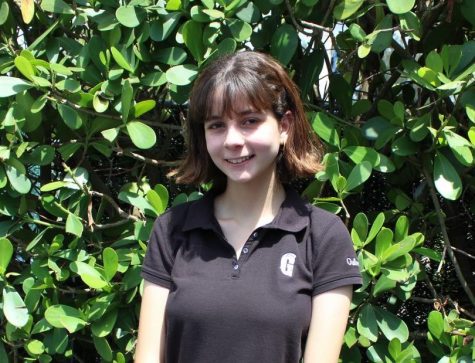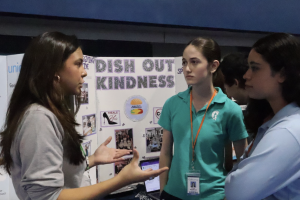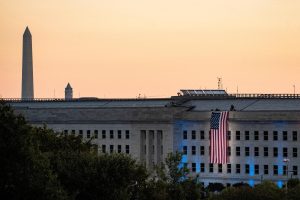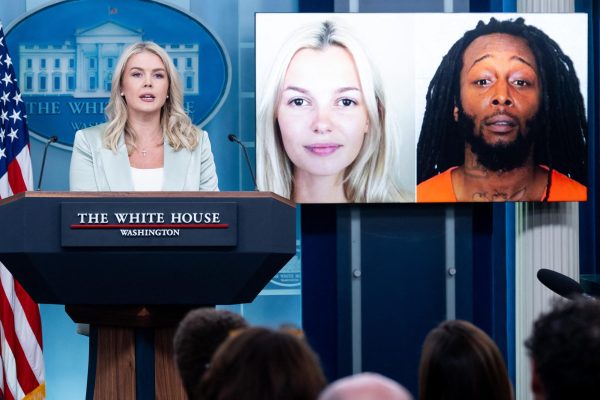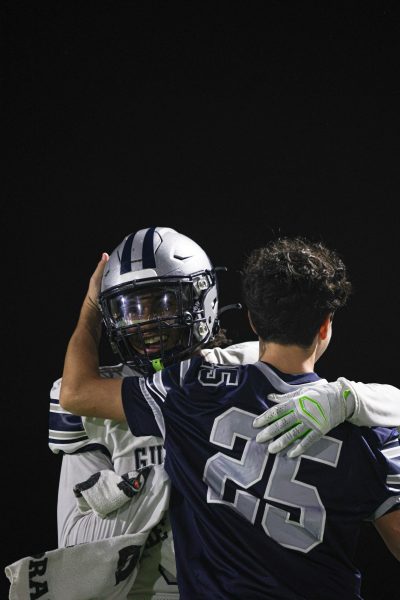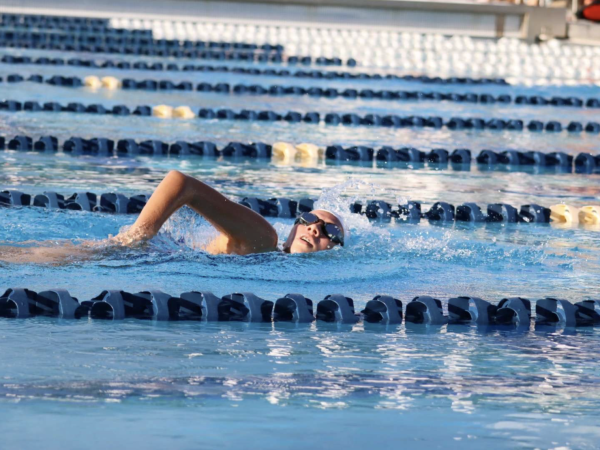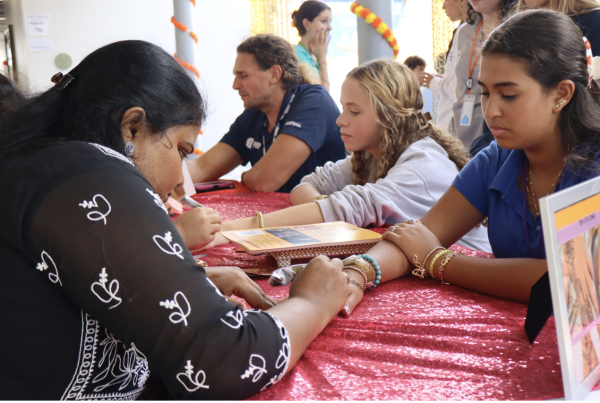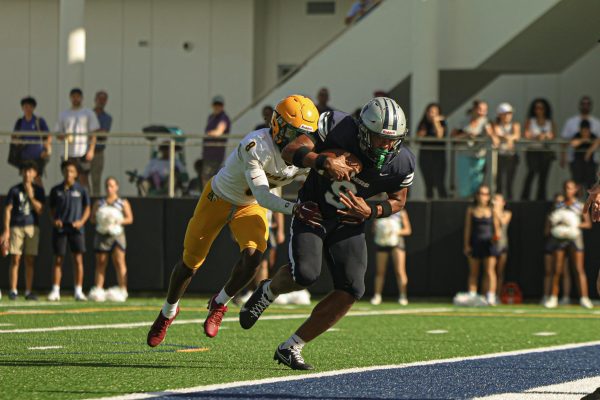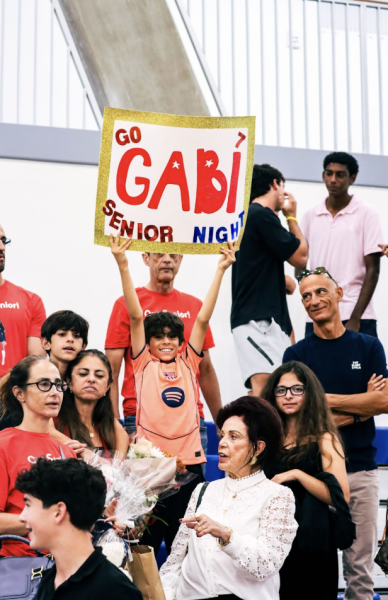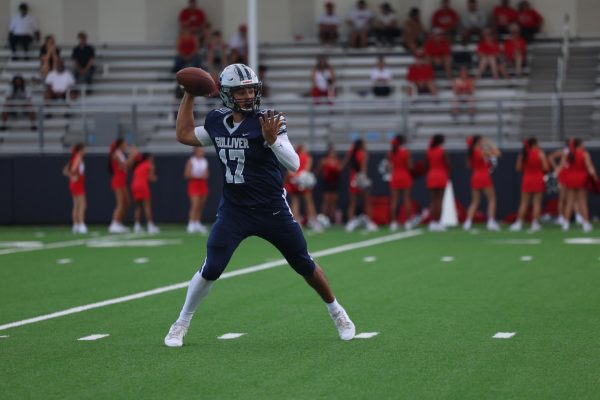How a taxi ride took strides to save the world
April 30, 2019
The student-led Miami Youth Climate Summit took place on Saturday, Mar. 9 at Florida International University. The event, hosted by the Field Studies Program, featured keynote speakers such as Zoo Miami Communication’s Director and Goodwill Ambassador Ron Magill, Youth Outreach Manager for Exposure Labs’ Zack Rago, of the Netflix documentary Chasing Coral, and many National Geographic Explorers fellows.
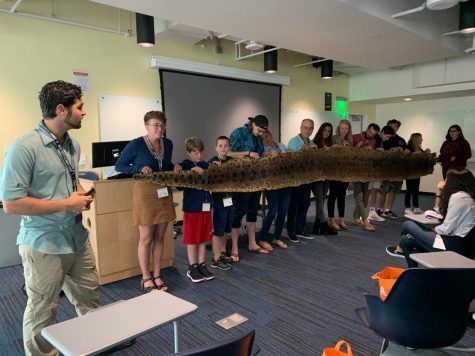
Speaker presents a Burmese Python skin stretched across 12 students. The exhibition demonstrated the size of this invasive snake.
The idea for a summit arose after Biology teacher Emilia Odife shared a taxi in the Galápagos with a National Geographic teacher. The teacher hosted a similar event in California and even invited Odife and her students to the event. After maintaining contact and discussing the concept, Odife shared the idea of creating their own summit with her students in the Field Studies Program, and so the Miami Youth Climate Summit was born.
“We opened my calendar and picked a date, I facilitated the process but the students are the ones who did all the legwork, they are the ones who decided on guest speakers and figured out everything” Said Odife.
The first of a hoped annual event only featured one presentation solely based on the science of climate change, the summit rather focused on the effects of climate change around the globe.
“The day consisted of several breakout sessions that focused on different aspects of climate change, such as the impacts on agriculture, business, pollution, and agriculture. We found the day very successful as participants were able to create a dialogue about the possible solutions and responses to the problems at hand” Said Senior, Elizabeth Vair who helped organize the event
Unlike most summits, two educator-only sessions were featured during the event, one with national geographic fellows to become certified in national geographic education, while the other was led by a professor at FIU, talking about creating an engaging environment for students. The Summit took place to establish a ground where the youth could communicate and exchange ideas to combat climate change, it also initiated the Climate Change Student Advisory Board in Florida.
The advisory board will consist of one or two students from around five different schools, these representatives will communicate with local organizations and work on developing programs, encourage activism, and eventually affect climate change related policies.
This advisory board will ensure that climate change is always a prevalent topic in our schools, as well as creating future summits and influence change.

